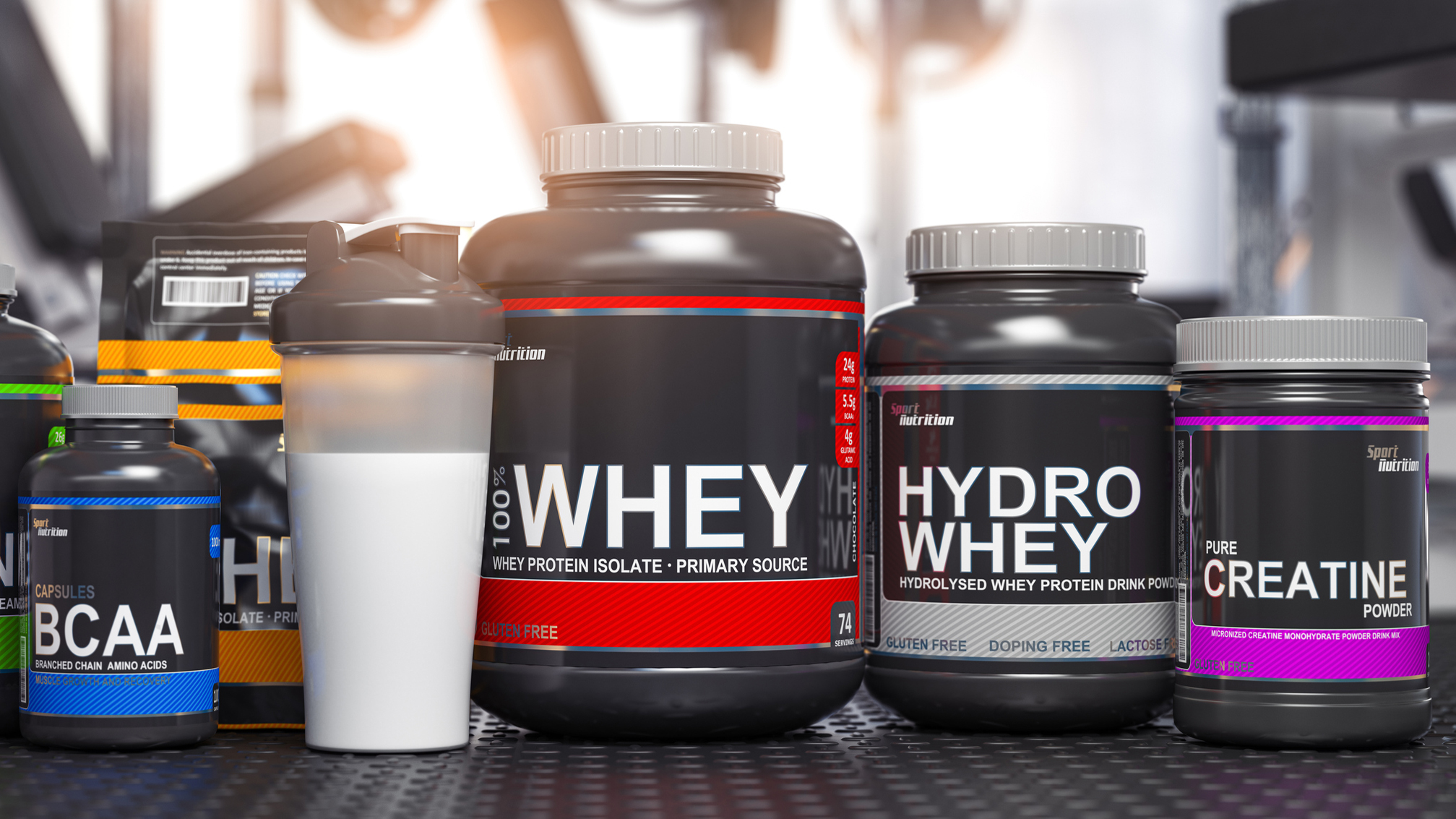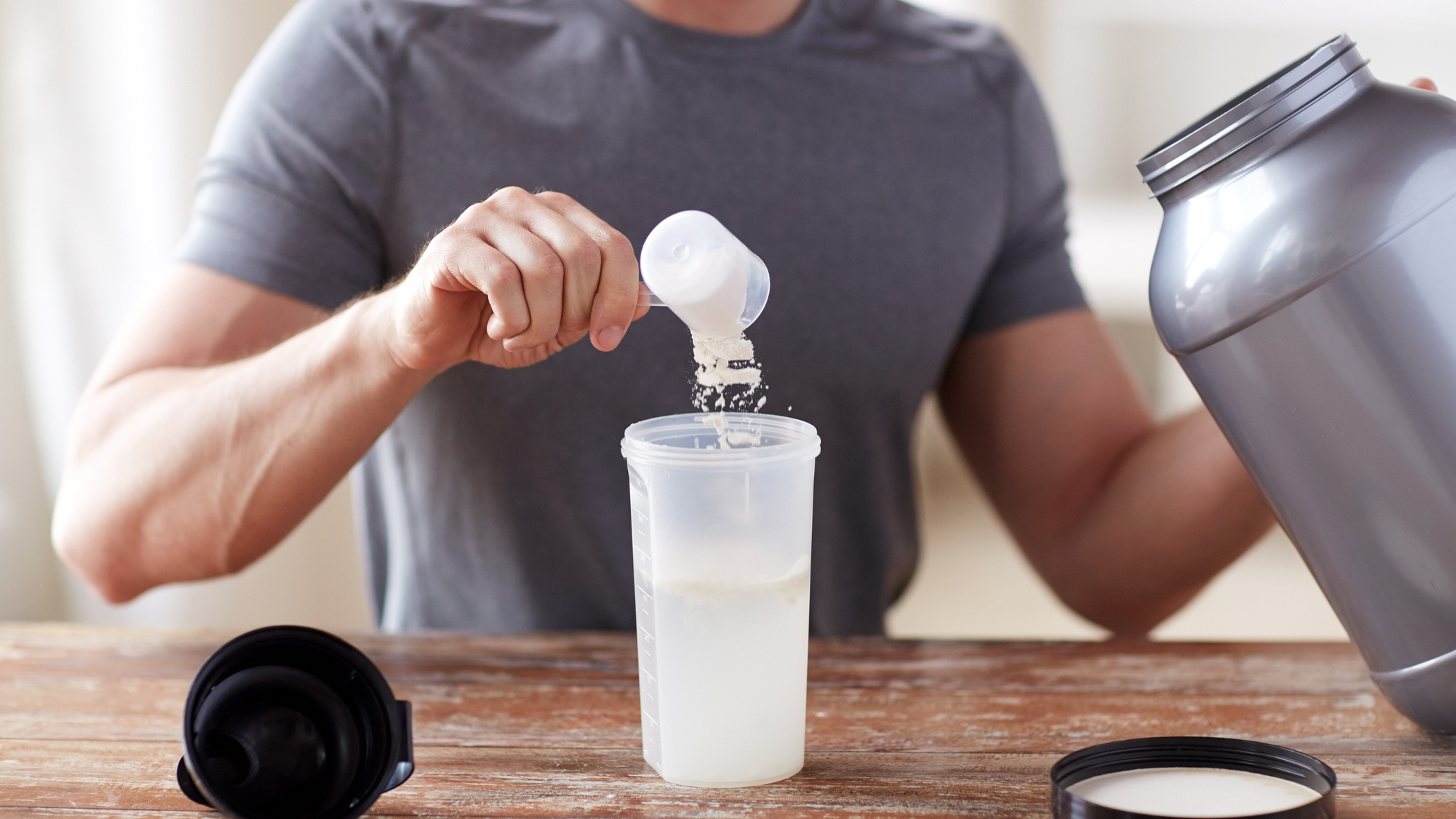
Start your week with achievable workout ideas, health tips and wellbeing advice in your inbox.
You are now subscribed
Your newsletter sign-up was successful
Whether you’ve not worked out for years or you’re a regular gym-goer, supplements, like shakes and bars can ensure you’re getting your recommended daily dose of protein – the micronutrient responsible for building muscle, reducing your appetite, and supporting healthy metabolism, all of which play a key role in weight loss.
Knowing where to buy the best protein powder for weight loss (the best choice you can find out for yourself in our guide) can be a major advantage, especially if what’s on the scales is your main goal.
However, it’s important to note that while protein supplements are a common strategy employed by those trying to shed pounds or gain muscle, it’s not the be-all and end-all of fitness. There are lots of things to consider other than protein and supplements, which we will go into within this article.
So, if you’re looking to find out what factors can help alongside a balanced diet and exercise to help lose weight, check out our suggestions below...
Supplements to build muscle: Protein Powder
Protein powder, especially whey protein supplements, can be a great way to reach your weight loss goals. According to studies, whey protein can help you drop pounds while gaining muscle. One participant in the research even claimed to have 2.5 scoops twice a day as a meal replacement, and it helped them lose 4kg in just two weeks.
Although many fitness experts and nutritionists claim that it’s not healthy to replace meals with protein shakes and instead they should be used as a means to recover after exercise, or as a snack in between meals instead of reaching for sugary treats.
Whey is one of the proteins found in milk, which is typically 80% casein and 20% whey. This is why whey supplement products are normally more expensive: it takes longer to extract but it’s also faster to digest than casein, which you can also buy as a protein supplement.
Start your week with achievable workout ideas, health tips and wellbeing advice in your inbox.
It’s also worth noting there are many different kinds of protein supplements available on the market, not just whey, which isn’t dairy-free. There are tonnes of vegan alternatives, some of which use peas, soy, or even mushrooms as their source of protein.
Selecting protein powder
One of our favorites is the rather long-winded Optimum Nutrition Gold Standard Whey Muscle Building and Recovery Protein Powder, which is a market leader thanks to its tasty formula and great value. We also love Innermost’s vegan formula, The Health Protein, which has a boost of added ingredients that support the immune system.
However, there are a million different protein powders available right now both across the US and the UK. Check out our best protein powders for women and men to find out which is best suited to you.
Supplements to build muscle: BCAAs
Branch-chain amino acids, known more commonly as BCAAs, are the building blocks of protein and help your body rebuild and grow new muscle. Our bodies only produce nine of the 21 that exist, so BCAA supplements are there to offer us the ones we’re missing in a bid to speed up muscle repair and thus growth.
It’s not just muscle building that BCAAs are capable of. Research conducted by the INTERMAP Cooperative Research Group found that BCAA intake is associated with a lower prevalence of being overweight or obese in middle-aged East Asian and Western adults.
Where to buy BCAAs
There are heaps of BCAA supplements out there, from trusted brands like Optimum Nutrition and Bulk Powders, both of which are available in the US and the UK.

Supplements to build muscle: Creatine
Creatine is probably considered a supplement only bodybuilders should take, but this is far from the case. Unlike common conceptions that this product is akin to steroids, creatine is a simple and effective supplement for anyone that’s into resistance training.
That’s because creatine is an amino acid that our bodies store in our muscles and brain to use as a natural energy source. According to popular UK-based supplement brand Innermost, creatine is one of the most researched sports supplements in the world today.
“Creatine can assist in the prevention of injury from high-intensity exercise as well as improving muscle strength,” the company says. You may have heard that you can use creatine for weight loss, but that's generally not the case, as it helps increase muscle mass and water retention.
Other factors to consider when building muscle
As PT and Human Movement and Elite Performance Specialist Luke Worthington notes, even if you’re training specifically for fat loss, then you need to address your energy balance with diet. This, including protein intake, might be paramount in order to create measurable changes to body composition, but exercise is still very important as a catalyst to weight loss.
“When it comes to improving any of the measurable health markers a combination of full body resistance training, low-intensity cardio, and a small amount of high-intensity cardio is, by a considerable margin, the most effective, efficient and sustainable method,” Worthington says.
Essentially, managing your weight comes down to a balancing act, and the equation is simple. If you eat more calories than you burn within a day, you’ll gain weight. On the flip side, if you eat fewer calories and/or burn more calories (through physical activity) than your daily expenditure, you’ll lose weight.
Recovery in the form of sleep is also crucial for weight loss. One research study conducted in Korea found that a lack of sleep can increase appetite by changing hormones, makes us more likely to eat unhealthy foods, and influences how body fat is lost.
Lee Bell is a London-based journalist, copywriter, specializing in all things tech and lifestyle. He is also a qualified personal trainer. He started his journalism career a decade ago as a reporter covering the latest gadgets and innovations at tech tabloid The Inquirer. Lee went freelance in 2016 to broaden his expertise, moving into news, reviews and feature writing for a host of national print and online lifestyle titles such as GQ, Forbes, Esquire, Men’s Health, Wired, The Metro, and The Mirror. He has an insatiable appetite for travel, Dharma yoga, and the odd outdoor challenge.

